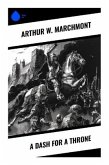Set against the backdrop of 15th-century France, Walter Scott's 'Quentin Durward' weaves a tale rich in historical veracity and romantic adventure. The narrative follows the eponymous hero, a young Scottish archer, as he navigates a world fraught with political intrigue, feudal loyalties, and the pursuit of love. Scott's literary style, characterized by vivid characterization and detailed settings, evokes the chivalric spirit of the medieval period while exploring themes of honor, betrayal, and the quest for identity amidst turmoil. The novel reflects the burgeoning historical novel genre of the early 19th century, acting as a bridge between romanticism and realism. Walter Scott, a Scottish novelist and poet, is often credited with popularizing the historical novel form. Drawing from his own heritage and extensive research, Scott found inspiration in tales of his ancestors and the storied past of Scotland and Europe. His travels, immersion in folklore, and fascination with historical events profoundly influenced his writing, allowing him to create enduring characters like Quentin Durward, whose journey embodies the struggle between personal desire and societal expectations. 'Quentin Durward' is an essential read for history enthusiasts and lovers of romantic fiction alike. Scott's intricate plotting and deftly rendered historical landscape transport the reader to a rich and dynamic time, making it a compelling exploration of human experience. This work not only entertains but also serves as a valuable insight into the historical context of the era, appealing to scholars and casual readers eager to understand the complexities of history through the lens of literature.
Bitte wählen Sie Ihr Anliegen aus.
Rechnungen
Retourenschein anfordern
Bestellstatus
Storno








